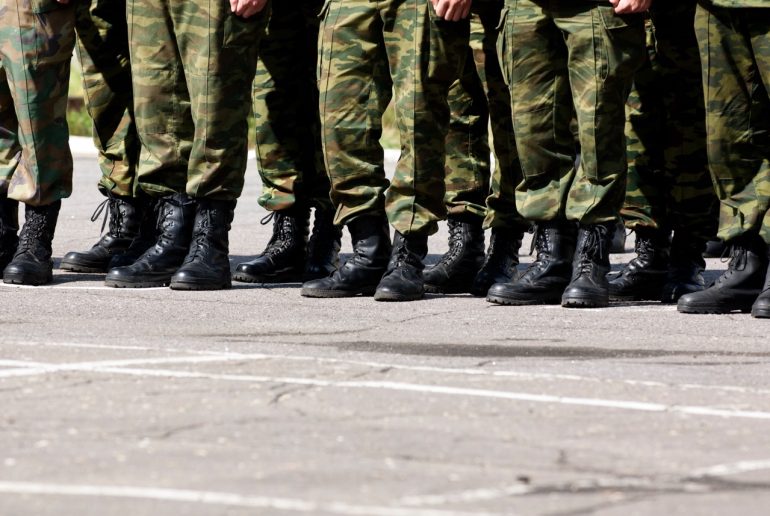More than half of Czechs would be willing to participate in the defence of the country, according to a survey conducted by the STEM agency and published this week, but less than half of those would be willing to do so with a weapon in their hands. Moreover, most Czechs would not consider serving in the army.
A quarter of Czechs are in favour of increasing defence spending to 3-5% of gross domestic product (GDP), according to the survey, conducted on 1,059 adult respondents from 12-26 June.
The respondents were first asked whether they would be willing to engage in the active armed defence of the Czech Republic, if the country were militarily attacked, to which some 28% said yes. The remainder were asked whether they would be willing to participate in a supporting role, such as logistics, information technology or health care. 53% of the remaining respondents answered positively.
“In total, this is more than half of the population declaring that they would be involved in some way in the defence of the country,” said STEM analyst Jiri Taborsky.
Among those who would defend the country with a weapon in their hands, men outnumber women and the young outnumber the elderly. For supporting roles, the results were almost balanced by gender and age, but people with lower education are less willing, according to STEM.
Around 79% of respondents would not consider serving in the military, up 4 percentage points from January. 14% of people would consider a month-long voluntary military exercise, as would up to a quarter of young people aged 18-29, Taborsky said.
In the case of voluntary training, respondents were most interested in healthcare and first aid, how to respond in crisis situations, and self-defence. In contrast, they are least interested in cybersecurity and firearm training.
According to an analysis by the Ministry of Defence, the Czech defence sector had 28,285 professional soldiers at the beginning of this year, with 4,521 people in the active reserve, but there are about 24,000 soldiers in the army itself. According to current plans, the army would like to have 30,000 professional soldiers by 2030, and 10,000 members of the active reserve.
The new NATO capability-building targets require up to 37,500 soldiers to meet collective deterrence and defence needs, according to Chief of Staff Karel Rehka.
One-third of people believe that the Czech Republic should stay at around 2% of GDP allocated for defence spending, while more than one-fifth would be in favour of reducing it. A quarter of Czechs, on the other hand, were in favour of increasing spending to 3-5% of GDP, while almost one-fifth did not express an opinion.
“The January research took place even before the uncertainty about the developments in the US and its defence policy, which gives a clear message to Europe that it must start taking care of its own security,” said Taborsky. “The June survey was already taking place entirely in the light of this fact, but it did not affect the attitudes of the Czech public.”
The June summit of the North Atlantic Treaty Organisation (NATO), at which the allies agreed to gradually increase spending up to 5%, did not have time to influence the results.
Around 44% of respondents believe the Czech Republic should head towards the west in its foreign policy orientation, while more than a half said the country should stay somewhere in between east and west. Only a small fraction of those polled said they were in favour of taking the Czech Republic eastwards.







